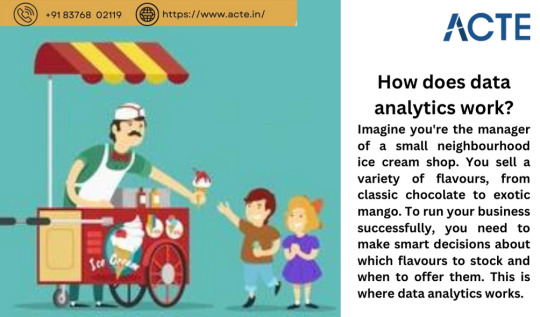#Data analysis services
Explore tagged Tumblr posts
Text
Outsourced b2b lead generation

Lead generation refers to a procedure to find, nurture, contact and convert leads into your potential buyers. Due to its complexity and criticalness, outsourcing to an experienced lead generation organisation can be helpful. With this outsourced B2b lead generation, your sales and efficiency can be developed in the sales procedure.
2 notes
·
View notes
Text

Data Research and Analysis at Call2Customer involves systematically gathering, reviewing, and interpreting data to provide actionable insights. Our expert team ensures accurate and comprehensive analysis, empowering businesses to make informed decisions, identify trends, and optimize strategies for enhanced performance and growth.
#Data Research Services#Data Analysis Services#outsourcing research#call center solutions#call center services#call center outsourcing
0 notes
Text
Expert Data Analysis
Certainly! Here’s a Tumblr post focusing on expert data analysis provided by VK Academy as an agency, highlighting skills and the value they bring to businesses.
Mastering Expert Data Analysis with VK Academy 📊✨
In the realm of business strategy, expert data analysis is not just a tool but a transformative force. VK Academy stands at the forefront, offering unparalleled data analysis services tailored specifically for agencies. Here’s why VK Academy is your ultimate partner for harnessing the power of data:
Why VK Academy?

Tailored Solutions for Agencies: VK Academy specializes in understanding and meeting the unique needs of agencies, delivering customized data analysis solutions that drive client success.
Cost-Effective Excellence: VK Academy offers premium data analysis services at competitive rates, ensuring that agencies of all sizes can access top-tier insights without breaking the bank.
Industry-Leading Expertise: With a team of seasoned data analysts, VK Academy brings years of industry experience to the table, ensuring that every insight is rooted in deep knowledge and strategic foresight.
Comprehensive Services: From initial data collection and thorough cleaning to advanced analytics and insightful visualization, VK Academy covers all facets of data analysis to provide holistic solutions.
Actionable Insights: VK Academy excels in transforming complex data into clear, actionable insights that empower agencies to make informed decisions and drive client satisfaction.
Essential Skills VK Academy Brings:
Data Collection and Preparation: Expertise in gathering and preparing data efficiently, ensuring accuracy and relevance.
Advanced Statistical Analysis: Utilization of sophisticated statistical methods to uncover meaningful patterns and trends within datasets.
Data Visualization: Proficiency in creating compelling visual representations of data, making insights accessible and impactful.
Predictive Analytics: Harnessing historical data to forecast future trends and opportunities, empowering agencies to stay ahead of the curve.
Strategic Consultation: Translating data-driven insights into strategic recommendations that enhance client strategies and foster growth.
Benefits of Expert Data Analysis:
Informed Decision-Making: Equip agencies with the insights needed to make well-informed decisions that drive client success.
Operational Optimization: Identify and address inefficiencies within agency operations, enhancing productivity and efficiency.
Market Intelligence: Gain a deep understanding of market trends and consumer behavior, enabling agencies to tailor strategies effectively.
Competitive Edge: Empower agencies to innovate and maintain a competitive advantage in the dynamic business landscape through data-driven strategies.
Unlock the potential of your agency with VK Academy’s expert data analysis services. Embrace the future of business strategy today! 🌟
0 notes
Text
Turn data into actionable insights. Our Business Intelligence consulting services help you unlock the power of your data to make informed decisions, optimize processes, and gain a competitive edge.
#bi consulting services#business intelligence services#business intelligence company#business intelligence and analytics#bi solutions#business intelligence analytics#data analytics company#data analysis services#ai for business intelligence#business intelligence consulting services#data analytics solutions#data analytics consulting#data analytics
0 notes
Text
#bibliometric analysis#bibliometric analysis methodology#bibliometric analysis research paper#bibliometric and content analysis#bibliometric and content analysis pdf#bibliometric research#data analysis services#statistical data analysis
0 notes
Text
The Role of Statistics in Data Analytics for Consumer Packaged Goods
Introduction Consumer Packaged Goods: Data Analytics for Consumer Packaged Goods (CPG) industry, the integration of data into marketing strategies is vital for maintaining a competitive edge. Leading brands adopt...
0 notes
Text
The Power of Data in Industry Analysis Services: Unveiling Insights for Informed Decisions
The Power of Data in Industry Analysis Services is akin to having a crystal ball that reveals valuable patterns, trends, and opportunities. As we delve into this article, we will uncover the transformative impact of harnessing data for industry analysis and decision-making.
0 notes
Text
Data analysis dissertation help
Data analysis dissertation help: - Data analysis: - The process of transforming, cleansing, and analysing unprocessed data to extract pertinent, usable information that aids in decision-making for businesses is known as data analysis. By offering helpful information and insights—which are frequently shown in the form of tables, graphs, charts, and images—the process helps lower the risks associated with making decisions.

Every time we make decisions in our daily lives, we may observe a fundamental instance of data analysis in action by considering the past or the future consequences of our choice. In essence, this is the process of doing a study on the past or the future and then coming to a conclusion. Data Analysis Types There are now six widely used forms of data analysis that are frequently used in the business and technological domains. Are.
• Analysing Descriptively In descriptive analysis, a dataset's primary characteristics are summed up and described. The primary objective is to arrange and exhibit the data in a significant manner, frequently employing metrics like average, median, mode, as well as standard deviation. It gives a summary for the data and facilitates the discovery of trends or patterns.
• Deductive Analysis Using sample data, inferential analysis seeks to draw conclusions or forecasts about the broader population. It entails using statistical methods including regression analysis, confidence intervals, and hypothesis testing. It facilitates extrapolating results from an experiment to a broader population.
• Analysing exploratory data (EDA) EDA is concerned with analysing and comprehending the data without making assumptions. To find patterns, linkages, and intriguing aspects, it makes use of data profiling tools, summary statistics, and visualizations. It aids in the creation of theories for additional research.
• Analysis of Diagnostics Understanding the cause-and-effect linkages in the data is the goal of diagnostic analysis. It looks at the elements or variables that lead to particular results or actions. Diagnostic analysis frequently makes use of methods like regression analysis, correlation analysis, and ANOVA (Analysis of Variance).
• Estimative Evaluation Predictive analysis is the process of forecasting or predicting future events based on past data. To find trends and create prediction models, it makes use of machine learning algorithms, statistical modelling approaches, and time series analysis. It is frequently applied to risk assessment, consumer behaviour forecasting, and sales forecasting.
• Script-Based Evaluation By making recommendations for decisions or actions based on the forecasts, prescriptive evaluation goes beyond predictive analysis. To produce meaningful insights and maximize results, it integrates historical data, algorithms for optimization, and business rules. It facilitates resource allocation and decision-making.
Data analysis dissertation help: - One service that helps students analyse their study data is dissertation data analysis aid. Many academic service providers, notably, workingment offer it. The service can assist students with organizing their findings and/or discussion chapter, interpreting their dataset, and editing their paper. Workingment is an excellent resource to start with if you need assistance with the data analysis for your dissertation. They provide practical help with data analysis from a knowledgeable coach who can walk you through every stage of the procedure. In addition, they offer a variety of other dissertation assistance services, such as software support and content assessment.
Note: Join our Telegram group or check out our Instagram for further updates and questions about Do my assignment.
1 note
·
View note
Text

Sigma Solve provides intelligent data analysis services to transform raw data into actionable insights by collecting, processing and presenting data that helps in enhancing business processes. We develop customized scientific software solutions with powerful data analysis capabilities, empowering businesses to efficiently analyze.
0 notes
Text
0 notes
Text
Business Data Analysis
Elevate Your Business with VK Academy's Expert Data Analysis Services 📊🚀
In today’s competitive market, data analysis is the cornerstone of informed decision-making and business growth. If you’re an agency looking to offer unparalleled value to your clients, VK Academy is your go-to partner for top-tier data analysis services. Here’s why VK Academy is the best choice for agencies and the skills they bring to the table:
Why Choose VK Academy?
Agency-Centric Solutions: VK Academy specializes in understanding the unique needs of agencies, providing customized data analysis that aligns perfectly with your client goals.
Affordable Excellence: Quality doesn’t have to come at a high price. VK Academy delivers premium data analysis services at cost-effective rates, making it accessible for agencies of all sizes.
Industry Expertise: With a team of seasoned data analysts, VK Academy ensures that you receive insights derived from years of experience and industry best practices.
End-to-End Services: From data collection and cleaning to advanced analytics and visualization, VK Academy covers all aspects of data analysis to provide comprehensive solutions.
Actionable Insights: VK Academy focuses on delivering clear, actionable insights that help your clients make data-driven decisions and achieve their business objectives.
Essential Skills VK Academy Brings:

Data Collection and Cleaning: Efficiently gather and prepare data for analysis, ensuring accuracy and reliability.
Statistical Analysis: Apply sophisticated statistical techniques to uncover trends and patterns, providing deep insights.
Data Visualization: Create compelling visual representations of data using advanced tools, making it easier to understand and act upon.
Predictive Analytics: Utilize historical data to forecast future trends, helping clients stay ahead in the market.
Strategic Decision-Making: Transform data insights into strategic recommendations that drive client success and business growth.
Benefits of Business Data Analysis with VK Academy:
Enhanced Client Decision-Making: Enable your clients to make well-informed decisions backed by robust data insights.
Operational Efficiency: Identify and address inefficiencies to optimize business operations, saving time and resources.
Market Insight: Provide clients with a comprehensive understanding of market trends and customer behaviors to refine their strategies.
Competitive Edge: Use data-driven insights to help clients innovate and maintain a competitive advantage in their industry.
Empower your agency with VK Academy’s expert data analysis services and take your client offerings to the next level. Discover the transformative power of data today! 🌟
0 notes
Text
https://justpaste.it/9rxlg
#bibliometric and content analysis#bibliometric analysis#bibliometric analysis methodology#bibliometric analysis research paper#bibliometric and content analysis pdf#bibliometric research#data analysis services#statistical data analysis
0 notes
Text
Beyond Chain-of-Thought: How Thought Preference Optimization is Advancing LLMs
New Post has been published on https://thedigitalinsider.com/beyond-chain-of-thought-how-thought-preference-optimization-is-advancing-llms/
Beyond Chain-of-Thought: How Thought Preference Optimization is Advancing LLMs
A groundbreaking new technique, developed by a team of researchers from Meta, UC Berkeley, and NYU, promises to enhance how AI systems approach general tasks. Known as “Thought Preference Optimization” (TPO), this method aims to make large language models (LLMs) more thoughtful and deliberate in their responses.
The collaborative effort behind TPO brings together expertise from some of the leading institutions in AI research.
The Mechanics of Thought Preference Optimization
At its core, TPO works by encouraging AI models to generate “thought steps” before producing a final answer. This process mimics human cognitive processes, where we often think through a problem or question before articulating our response.
The technique involves several key steps:
The model is prompted to generate thought steps before answering a query.
Multiple outputs are created, each with its own set of thought steps and final answer.
An evaluator model assesses only the final answers, not the thought steps themselves.
The model is then trained through preference optimization based on these evaluations.
This approach differs significantly from previous techniques, such as Chain-of-Thought (CoT) prompting. While CoT has been primarily used for math and logic tasks, TPO is designed to have broader utility across various types of queries and instructions. Furthermore, TPO doesn’t require explicit supervision of the thought process, allowing the model to develop its own effective thinking strategies.
Another key difference is that TPO overcomes the challenge of limited training data containing human thought processes. By focusing the evaluation on the final output rather than the intermediate steps, TPO allows for more flexible and diverse thinking patterns to emerge.
Experimental Setup and Results
To test the effectiveness of TPO, the researchers conducted experiments using two prominent benchmarks in the field of AI language models: AlpacaEval and Arena-Hard. These benchmarks are designed to evaluate the general instruction-following capabilities of AI models across a wide range of tasks.
The experiments used Llama-3-8B-Instruct as a seed model, with different judge models employed for evaluation. This setup allowed the researchers to compare the performance of TPO against baseline models and assess its impact on various types of tasks.
The results of these experiments were promising, showing improvements in several categories:
Reasoning and problem-solving: As expected, TPO showed gains in tasks requiring logical thinking and analysis.
General knowledge: Interestingly, the technique also improved performance on queries related to broad, factual information.
Marketing: Perhaps surprisingly, TPO demonstrated enhanced capabilities in tasks related to marketing and sales.
Creative tasks: The researchers noted potential benefits in areas such as creative writing, suggesting that “thinking” can aid in planning and structuring creative outputs.
These improvements were not limited to traditionally reasoning-heavy tasks, indicating that TPO has the potential to enhance AI performance across a broad spectrum of applications. The win rates on AlpacaEval and Arena-Hard benchmarks showed significant improvements over baseline models, with TPO achieving competitive results even when compared to much larger language models.
However, it’s important to note that the current implementation of TPO showed some limitations, particularly in mathematical tasks. The researchers observed that performance on math problems actually declined compared to the baseline model, suggesting that further refinement may be necessary to address specific domains.
Implications for AI Development
The success of TPO in improving performance across various categories opens up exciting possibilities for AI applications. Beyond traditional reasoning and problem-solving tasks, this technique could enhance AI capabilities in creative writing, language translation, and content generation. By allowing AI to “think” through complex processes before generating output, we could see more nuanced and context-aware results in these fields.
In customer service, TPO could lead to more thoughtful and comprehensive responses from chatbots and virtual assistants, potentially improving user satisfaction and reducing the need for human intervention. Additionally, in the realm of data analysis, this approach might enable AI to consider multiple perspectives and potential correlations before drawing conclusions from complex datasets, leading to more insightful and reliable analyses.
Despite its promising results, TPO faces several challenges in its current form. The observed decline in math-related tasks suggests that the technique may not be universally beneficial across all domains. This limitation highlights the need for domain-specific refinements to the TPO approach.
Another significant challenge is the potential increase in computational overhead. The process of generating and evaluating multiple thought paths could potentially increase processing time and resource requirements, which may limit TPO’s applicability in scenarios where rapid responses are crucial.
Furthermore, the current study focused on a specific model size, raising questions about how well TPO will scale to larger or smaller language models. There’s also the risk of “overthinking” – excessive “thinking” could lead to convoluted or overly complex responses for simple tasks.
Balancing the depth of thought with the complexity of the task at hand will be a key area for future research and development.
Future Directions
One key area for future research is developing methods to control the length and depth of the AI’s thought processes. This could involve dynamic adjustment, allowing the model to adapt its thinking depth based on the complexity of the task at hand. Researchers might also explore user-defined parameters, enabling users to specify the desired level of thinking for different applications.
Efficiency optimization will be crucial in this area. Developing algorithms to find the sweet spot between thorough consideration and rapid response times could significantly enhance the practical applicability of TPO across various domains and use cases.
As AI models continue to grow in size and capability, exploring how TPO scales with model size will be crucial. Future research directions may include:
Testing TPO on state-of-the-art large language models to assess its impact on more advanced AI systems
Investigating whether larger models require different approaches to thought generation and evaluation
Exploring the potential for TPO to bridge the performance gap between smaller and larger models, potentially making more efficient use of computational resources
This research could lead to more sophisticated AI systems that can handle increasingly complex tasks while maintaining efficiency and accuracy.
The Bottom Line
Thought Preference Optimization represents a significant step forward in enhancing the capabilities of large language models. By encouraging AI systems to “think before they speak,” TPO has demonstrated improvements across a wide range of tasks, potentially revolutionizing how we approach AI development.
As research in this area continues, we can expect to see further refinements to the technique, addressing current limitations and expanding its applications. The future of AI may well involve systems that not only process information but also engage in more human-like cognitive processes, leading to more nuanced, context-aware, and ultimately more useful artificial intelligence.
#ai#AI development#AI models#AI research#AI systems#Algorithms#analyses#Analysis#applications#approach#arena#Art#artificial#Artificial Intelligence#benchmarks#bridge#chain of thought reasoning#challenge#chatbots#collaborative#complexity#comprehensive#content#customer service#data#data analysis#datasets#development#domains#efficiency
2 notes
·
View notes
Text
No One Will Ever Teach You About Data Analytics in a Very Simple Way with Real-Time Examples
In today's modern digital world, data is all around us. Every time you use your smartphone, buy something online, or share something on social media, you're creating data. But why is data important, and how can we use it to make better decisions? That's where data analytics comes into play, and in this blog, we'll explain it in simple terms.

What is data analytics?
At its core, data analytics is like a detective for the digital world. It's the process of looking closely at data, cleaning it up, changing it into useful information, and figuring out what it tells us. This information helps people and organisations make smart choices, solve problems, and even guess what might happen in the future.
How does data analytics work?
Imagine you run a small ice cream shop in your neighborhood. You sell different flavours, from classic chocolate to unique mango. To run your shop well, you need to make good choices about which flavours to have and when to offer them. That's where data analytics can help, and I'll show you how it works using a simple example.

Data Collection
Every day, you keep a record of which ice cream flavours you sell and keep an eye on the weather. You also note whether it's a regular weekday or a fun weekend.
Data Analysis
After a few months, you have a pile of notebooks filled with sales data. You use a special computer programme to look at all this information.
Descriptive Analytics: You make graphs and charts to see which flavours are liked the most. For instance, you notice that chocolate sells well all year.
Diagnostic Analytics: Digging deeper, you discover patterns, like mango ice cream being a hit on hot weekends and vanilla being popular on weekdays.
Predictive Analytics
Here's where it gets exciting. Using past data, your analytics tool can make guesses. It tells you that the next weekend will be very hot. So, you decide to order more mango ice cream to be ready for the extra demand.
Prescriptive Analytics
Now, it's not just about guessing. You also get advice on what to do. Your analytics tool suggests that during the weekdays, you could offer a discount on vanilla to bring in more customers.
Implementing Changes
You follow the advice and give discounts on vanilla during the weekdays. You also make sure to have plenty of mango ice cream for the upcoming hot weekend.
Seeing Results
When the hot weekend comes, customers are happy to see lots of mango ice cream, and sales go up. On weekdays, the discount on vanilla brings in more customers and boosts sales.
This process keeps going, and you continue using data analytics to make good choices about flavours, discounts, and how much ice cream to have in stock. Your ice cream shop becomes more successful because you're using data to understand what customers like and how the weather affects sales.
In short, data analytics is like having a crystal ball for your business. It helps you understand what happened in the past (descriptive), why it happened (diagnostic), guess what might happen in the future (predictive), and suggest what you should do about it (prescriptive). Whether you run an ice cream shop or a big company, data analytics helps you make smarter decisions in real-time.
If you want to learn more about data analytics or need help using it in your business, you can talk to experts or take specialised courses. For example, ACTE Institute offers comprehensive data analytics training programmes that can give you the knowledge and skills you need, including job placement and certification. So, get ready to learn, explore the tools, and start turning data into valuable insights!
12 notes
·
View notes
Text

Rehoboth Academic Services based out of Bengaluru, India is the World's # 1 Dependable Thesis consultation experts since 2013. Founded by Dr. Ganasoundari, a renowned thesis expert, Systematic Review, Meta analysis and statistician she mentors 1000s of research scholars in accomplishing their PhD and Masters dream. email: mailto:[email protected] Mobile: + 91 9731988227 Website: https://www.thesiswritingsupport.com
#systematic review#meta analysis#phd#data analysis#writing#phd research#researchers#thesis#statistics#phd support#workshop#masters#phd help#phd thesis writing service
2 notes
·
View notes